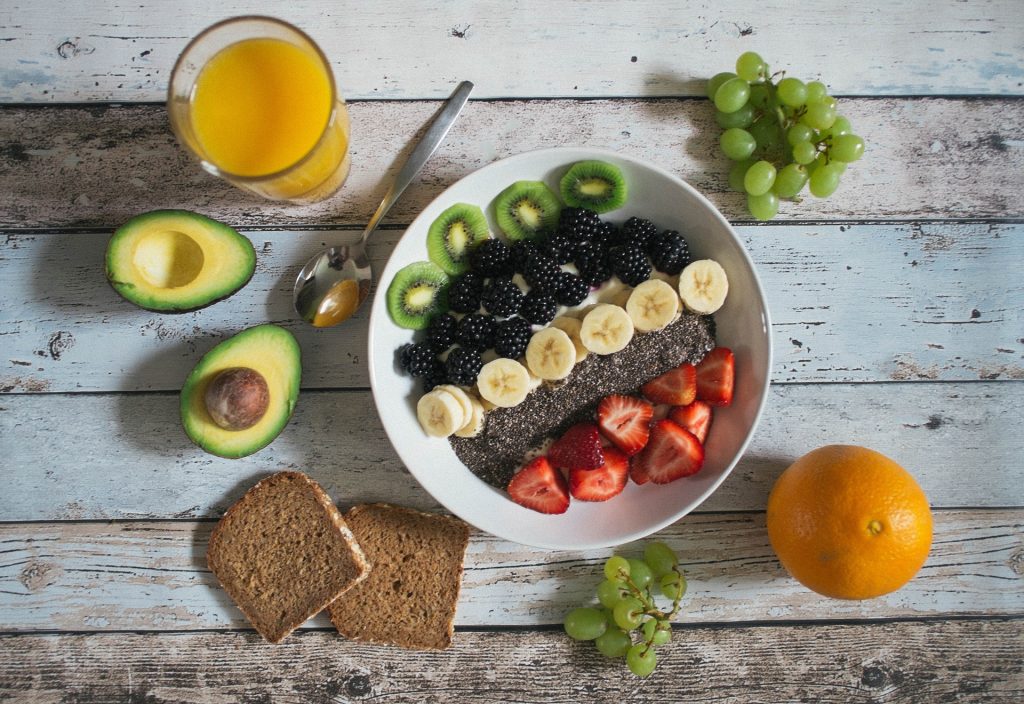Why male hormonal health is important
If there was ever a time to prioritize male hormone health, it is now. There has been a 20% decline in total serum testosterone among young adult men in the past two decades[7]. In addition to this, a study in the International Journal of Clinical Practice found that 37% of males above the age of 45 presented with impaired testosterone production[9].
It’s crucial to understand the varying lifestyle factors that have contributed to this decline so you can equip yourself with the necessary tools to prevent your own levels from plummeting. Sex drive? Strength? Muscle mass? Bone Density? Production of red blood cells and sperm?
ALL OF THESE are regulated by testosterone, so let’s explore what it is and ways to optimize it!
The Role of Testosterone in Men
Testosterone is the main sex hormone in men, although it is also important for physiological functions in women. As mentioned above, testosterone helps regulate different mechanisms in the body including:
- Libido
- Muscle mass and strength
- Mood stabilization
- Bone density
- Puberty and masculinization
- Sperm production[3]
Improve Sleep to Optimize Testosterone Levels
If you’re not catching adequate Z’s, improving your sleep quality might be one of the most important interventions to optimize your testosterone levels. In fact, a study in the Journal of the American Medical Association found that in healthy men whose sleep duration was reduced from eight to four hours for only one week, total testosterone serum levels decreased by 15%[6]. Considering testosterone levels naturally decline after the age of 30 at a rate of only 1-2% per year, a 15% decline is quite significant.
Getting high-quality sleep is easier said than done, especially when throwing in factors like a stressful job, kids, a snoring partner, or that late afternoon coffee you downed to power through the rest of your workday. Let’s cover some sleep hygiene tips so you feel a little more in control over this sector of your life.
One of the most important sleep tips I can give you is to curate a dark and relaxing environment. By dark, I’m talking as close to pitch black as possible. Power off all your devices at least an hour before climbing into bed. I hate to be the bearer of bad news, but that late-night scroll on the internet is not doing you any favors. Blue and artificial light sources drastically suppress melatonin production.
It is also helpful to avoid large and heavy meals before bedtime. Revving up your metabolism too close to bed could increase your sleep latency (the length of time it takes you to fall asleep). Sleep is a time for the body to rest and refresh. It can’t properly do that if it’s too busy digesting a heavy meal.
Other helpful tips to improve your sleep quality include limiting caffeine intake to before noon (caffeine has a half-life of five hours), going to bed and rising at the same time every day, incorporating a stress reduction technique before bed, and setting the thermostat to a cool temperature.
Incorporate More Exercise to Optimize Hormones
We often hear about the cardiovascular benefits of adequate exercise, but did you know it also elicits benefits on hormonal health in men?
Various studies have demonstrated positive changes in serum testosterone levels following exercise, especially weight and strength training. These increases in serum testosterone levels led to improved muscle mass and strength and a reduction in visceral fat[2].
Exercise’s contribution to reducing visceral fat is noteworthy. This is because excess visceral fat in the body raises the secretion of inflammatory cytokines leading to a cascade of events, eventually throwing off the hypothalamic pituitary testicular (HPT) axis. A wonky HPT axis is a recipe for lower concentrations of serum testosterone[11].
With all that said….. get moving and grab some weights!
Boost Zinc to Support Testosterone
Zinc is a critical nutrient when it comes to the regulation of several hormones in the body, including testosterone. Because Zinc is an essential trace mineral, it is not produced or stored in the body. You have to get it through your diet.
If your diet is lacking in this nutrient as a male (which is the case for most considering our mineral-depleted soils) you may not be transforming testosterone into its biologically active form.
When it comes to getting adequate zinc, reach for food first before a supplement. Here’s a list of plant and animal-based foods rich in this mineral:
- Pumpkin seeds
- Oysters
- Grass-fed beef
- Chicken
- Beans
- Hemp seeds
- Whole grains (quinoa, oats)
- Cashews
- Spinach
Something to keep in mind when it comes to plant-based sources of zinc is their phytic acid content, especially in nuts, seeds, and legumes. The presence of phytic acid impairs the absorption of zinc[4]. Soaking nuts and legumes overnight may reduce the percentage of phytic acid.
If you’re concerned you are not getting adequate zinc through your diet alone, supplementation may be beneficial. One study found that supplementation in zinc-deficient elderly men increased their serum testosterone levels by about 8 mmol/L[12]. Before introducing supplements, always speak with your doctor or healthcare practitioner to discuss any potential risks or contraindications.
Stress Reduction for Male Hormone Health
The role of prolonged stress on hormonal health is often overlooked. If you are experiencing low libido, anxiety, fatigue, changes in your appetite, or emotional withdrawal, it’s time to check your stress levels.
Cortisol, our primary stress response hormone, has an inverse relationship with testosterone. This is why the scientific literature has demonstrated lower levels of testosterone during times of psychological and physical stress[1].
In today’s fast-paced society, competitive work culture, family stress, and financial demands, reducing your stress load can feel impossible. Overhauling your life and trying to implement a million different stress-reduction techniques will only add to your current stress load. Review this list of ten stress-reduction techniques and feel out which ones are attainable for you.
- Engage in an enjoyable physical activity daily
- Try guided meditation
- Listen to relaxing music when you need to take a break from your day
- Pause during your work day to do a three-minute body scan
- Be mindful of caffeine intake
- Try breathwork exercises
- Spend more time in nature, ground your bare feet to the earth if possible
- Try yoga
- Seek emotional support from friends, family members, or a licensed professional
- Find a creative outlet (painting, drawing, singing, dancing, etc.)
- Establish a relaxing bedtime routine (refer back to optimizing sleep section for additional tips)
Skip the Fragranced Products for Hormone Health
We are exposed to an unprecedented amount of endocrine disruptors today. Endocrine disrupting chemicals (EDCs) refer to compounds that you are exposed to in your environment that interfere with the body’s hormones. This interference could involve increasing or decreasing baseline hormone levels, changing the normal production of hormones, or mimicking the structure of endogenous hormones.
What do EDCs have to do with testosterone and male hormonal health you ask? Well, the male reproductive system is extremely sensitive to the adverse effects of EDCs.
Phthalates, just one type of endocrine disruptor, have been shown to block the normal effect of testosterone on different tissues and organ systems. Endocrine disruptors such as phthalates and BPA (Bisphenol-A) often target the testes and negatively affect sperm production, development, and motility[5].
EDCs often have estrogenic properties and inhibit the enzymes involved in male steroidogenesis. A disruption in steroidogenesis can result in the reduction of reproductive hormones, including testosterone[5]. In one significant study, higher concentrations of EDCs in male urine samples, specifically phthalates, were correlated with lower testosterone levels[8].
In addition to phthalates and BPA, here are some examples of other concerning endocrine disruptors:
- Dioxins
- Perchlorate
- Perfluoroalkyl and Polyfluoroalkyl Substances (PFAs)
- Triclosan
- Polybrominated Diphenyl Ethers (PBDE)
- Polychlorinated Biphenyls (PCB)[10]
Exposure to EDCs occurs through contact with contaminated air, soil, water, food, and personal care products. These chemicals have completely infiltrated our environment so how the heck do you avoid them? The following practices can mitigate exposure:
- Ditch the plastic food storage containers and opt for glass or silicone
- Buy organic produce where budget allows
- Consume organic, grass-fed, or pasture-raised animal products when possible
- Check the Environmental Working Group (EWG) ranking of personal care and cleaning products on their website database
- Avoid buying plastic water bottles and consider getting a water filter
- Avoid products that contain synthetic fragrances
- Be skeptical of “BPA-Free” packaging, it often contains even more harmful replacements
- Avoid buying furniture manufactured with flame retardants
- Skip the non-stick cookware, opt for cast iron, stainless steel, and ceramic
The good news is consumers are demanding more transparency in manufacturing practices of companies, leading to safer products on the market. The bad news is it might be time to lovingly ask your partner to stop their trips to Bath and Body Works for scented chemical cocktails.
Do what you can to reduce your exposure and don’t stress too much about the rest. As we saw earlier, stress can be just as toxic as these chemicals.
Important Takeaways
If you are reading this right now, it means you care about your hormone health. You are striving to live a balanced lifestyle so you can show up as the best version of yourself for those around you.
Don’t let the far too common sedentary and processed food-filled American lifestyle accelerate the decline of your testosterone levels. It will hijack your well-being.
Take these foundational tips and empower yourself to reclaim your vitality!
References
[1]Afrisham, R., Sadegh-Nejadi, S., SoliemaniFar, O., Kooti, W., Ashtary-Larky, D., Alamiri, F., . . . Khaneh-Keshi, A. (2016). Salivary testosterone levels under psychological stress and its relationship with rumination and five personality traits in medical students. Psychiatry Investigation, 13(6), 637-643. doi:10.4306/pi.2016.13.6.637
[2]Chasland, L. C., Yeap, B. B., Maiorana, A. J., Chan, Y. X., Maslen, B. A., Cooke, B. R., . . . Green, D. J. (2021). Testosterone and exercise: Effects on fitness, body composition, and strength in middle-to-older aged men with low-normal serum testosterone levels. American Journal of Physiology-Heart and Circulatory Physiology, 320(5). doi:10.1152/ajpheart.00010.2021
[3]Harvard Health Publishing. (2019, August 29). Testosterone – what it does and doesn’t do. Retrieved February 8, 2023, from https://www.health.harvard.edu/medications/testosterone–what-it-does-and-doesnt-do
[4]Harvard School of Public Health. (2023). Are anti-nutrients harmful? Retrieved February 8, 2023, from https://www.hsph.harvard.edu/nutritionsource/anti-nutrients/
[5]Jeng, H. A. (2014). Exposure to endocrine-disrupting chemicals and male reproductive health. Frontiers in Public Health, 2(55). doi:10.3389/fpubh.2014.00055
[6]Leproult, R., & Van Cauter, E. (2011). Effect of 1 week of sleep restriction on testosterone levels in young healthy men. JAMA, 305(21), 2173. doi:10.1001/jama.2011.710
[7]Lokeshwar, S. D., Patel, P., Fantus, R. J., Halpern, J., Chang, C., Kargi, A. Y., & Ramasamy, R. (2021). Decline in serum testosterone levels among adolescent and young adult men in the USA. European Urology Focus, 7(4), 886-889. doi:10.1016/j.euf.2020.02.006
[8]Mendiola, J., Jørgensen, N., Andersson, A. -., Calafat, A. M., Silva, M. J., Redmon, J. B., . . . Swan, S. H. (2010). Associations between urinary metabolites of di(2-ethylhexyl) phthalate and reproductive hormones in fertile men. International Journal of Andrology, 34(4), 369-378. doi:10.1111/j.1365-2605.2010.01095.x
[9]Mulligan, T., Frick, M. F., Zuraw, Q. C., Stemhagen, A., & Mcwhirter, C. (2008). Prevalence of hypogonadism in males aged at least 45 years: The HIM study. International Journal of Clinical Practice, 60(7), 762-769. doi:10.1111/j.1742-1241.2006.00992.x
[10]National Institute of Environmental Health Sciences. (2022). Endocrine disruptors. Retrieved February 8, 2023, from https://www.niehs.nih.gov/health/topics/agents/endocrine/index.cfm
[11]Ottarsdottir, K., Nilsson, A. G., Hellgren, M., Lindblad, U., & Daka, B. (2018). The association between serum testosterone and insulin resistance: A longitudinal study. Endocrine Connections, 7(12), 1491-1500. doi:10.1530/ec-18-0480
[12]Prasad, A. S., Mantzoros, C. S., Beck, F. W., Hess, J. W., & Brewer, G. J. (1996). Zinc status and serum testosterone levels of healthy adults. Nutrition, 12(5), 344-8. doi:10.1016/s0899-9007(96)00064-0




